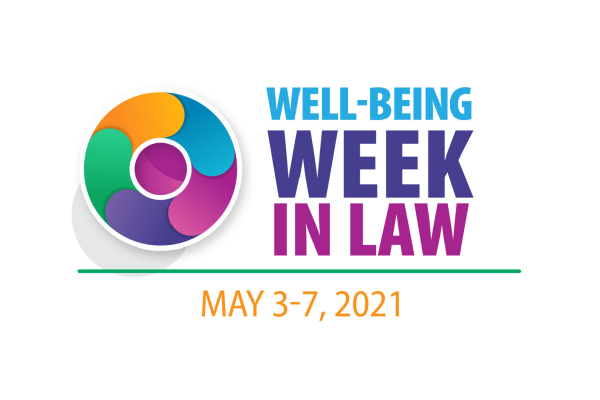Difficult conversations are necessary and often the most important. A handful of key guidelines can help with antiracism work in the legal profession and beyond.
Difficult conversations are necessary for growth and healing. Discomfort is necessary, in fact required, in order for change to occur. The work that is before us, the work of racial justice, racial healing, and the dismantling of white supremacy, requires new levels of discomfort for white people. Those of us who seek to be advocates and make change cannot make a difference without any personal sacrifice, and to engage in difficult conversations is still a very privileged sacrifice to make.
This post is about the personal and professional relationships we are in each day. This blog post is not about protests, social media posts, outward-facing open statements/letters, or general demonstrations of support and solidarity — all of which are also needed. This post is about the daily opportunities for humble self-reflection and personal commitment to change. It’s about the daily opportunities to address microaggressions, unconscious bias, and behaviors that contribute to workplace cultures and family dynamics that promote inequality.
One of the most powerful experiences we can have connecting to our collective humanity is when we take some of the power that we have and we spend it to the benefit of someone else, expecting nothing in return. One such opportunity we all have to spend our power is in the conversations we have with those around us.
Following are tips to help you prepare for your next potentially difficult conversation about antiracism or otherwise with a coworker, friend, or family member. This is not an exhaustive list; seek more resources as you need them, and be mindful to develop your discretion in using various techniques that follow.
- Change your Goal: Compelling arguments rarely change people’s minds, unless of course that person was looking to learn a new perspective or was generally open to adjusting their perspective on an issue. Strongly held beliefs are nearly impossible to sway with well thought out arguments. Rather than expecting to change their mind in one conversation, focus on the smaller goal of softening their perspective incrementally, which over time might enable their mind to change. Also, accept that humans act defensively at times (often expressed through anger), so plan to debrief through your social supports, therapist, mindfulness practice and other self-care practices.
- Use a Script: Words are hard, particularly when our emotions are elevated. We can relieve some anxious feelings by choosing words in advance when we anticipate a situation likely to involve difficult conversation. Even just a few key scripted phrases can help significantly. Rachel Cargle offers scripts on confronting racism here. Privilege to Progress offers these “racism interrupter” phrases to rely on when you feel caught off guard and need to respond. Those in the legal profession can appreciate the Socratic Method — scripted questions might have a better chance at making someone think than it would to assert a fact. Finally, you might just need a clear instruction to remind yourself of your limited goal or any other thought that helps you feel calm — make it a mantra, and use it.
- Practice “Active Listening”: People are less likely to argue with someone who they feel is listening and trying to understand their perspective in a respectful manner, even if there is still disagreement. Active listening will help you find common ground, express compassion, and ask genuine questions that help shift their thinking. Find more here on how to practice active listening.
- Keep your Grounding: First, focus on your own breathing and compassion to stay calm. Second, avoid speaking in terms of depersonalized principles of what is right and wrong “from 30,000 feet in the air.” A much more effective approach is to talk about your personal experiences, what is meaningful or important to you, and why it’s important to you. Third, recognize tactics others might use, like the common straw man fallacy, which is when a person distorts your position into an extreme position and tries to get you to defend that extreme (hence moving you from your original point). For example, when you discuss police reform and the other person responds with, “So you want there to be no police, no laws, and chaos and anarchy in the streets?” Instead of responding to that straw man, restate and clarify your original point.
- Stay Positive: It can be easy to make an argument about ideas into a personal indictment about someone’s character. Even when your opponent holds an unpopular perspective, don’t turn it into a team sport. When someone feels personally attacked, they are much more likely to become more entrenched in their viewpoint, for self-preservation purposes. Try to imagine that you are talking to a future ally, who just has yet to transform into that person. To influence anyone to improve, you first need to assume the best about their potential character and speak to them as a future friend and not a current enemy. Humor can help: If the above straw man argument is used in response to a conversation on police reform (“So you want there to be no police, no laws, and chaos and anarchy in the streets?”), following that up with humor can sometimes be helpful (“Yes and I’m saying that I want all daycares to be run by MS-13 gang members. You’re obviously a very good listener, because you picked up on my subtle point.”)
- Keep the Connection, When Possible: End the conversation unresolved if need be and if possible make sure the other person knows that you still care about and respect them, despite any disagreements you both hold. Again, most difficult conversations take time to work through and will require multiple iterations to achieve results. If you maintain the relationship, you will have more opportunities to continue the discussion. Still, you might learn you don’t want to maintain a particular relationship, or you might reach a point at which you need to prioritize other conversations and work.
Related Resources:
8 Tactics for Conducting Courageous Workplace Conversations About Race (Dana Brownlee, Forbes). Her keys include picking the right time, using “we” versus “I” language, doing your research, and more.
Difficult Conversations is in our Lending Library — just email jamice@lclma.org to borrow
Free & Confidential Consultations:
Lawyers, law students, and judges in Massachusetts can discuss concerns with a licensed therapist, law practice advisor, or both. Find more on scheduling here.
. . .
This post was written by Shawn Healy, PhD and was updated from a previous version published on December 12, 2018 titled “How to Handle Hot Topic Conversations,” which now redirects here.




